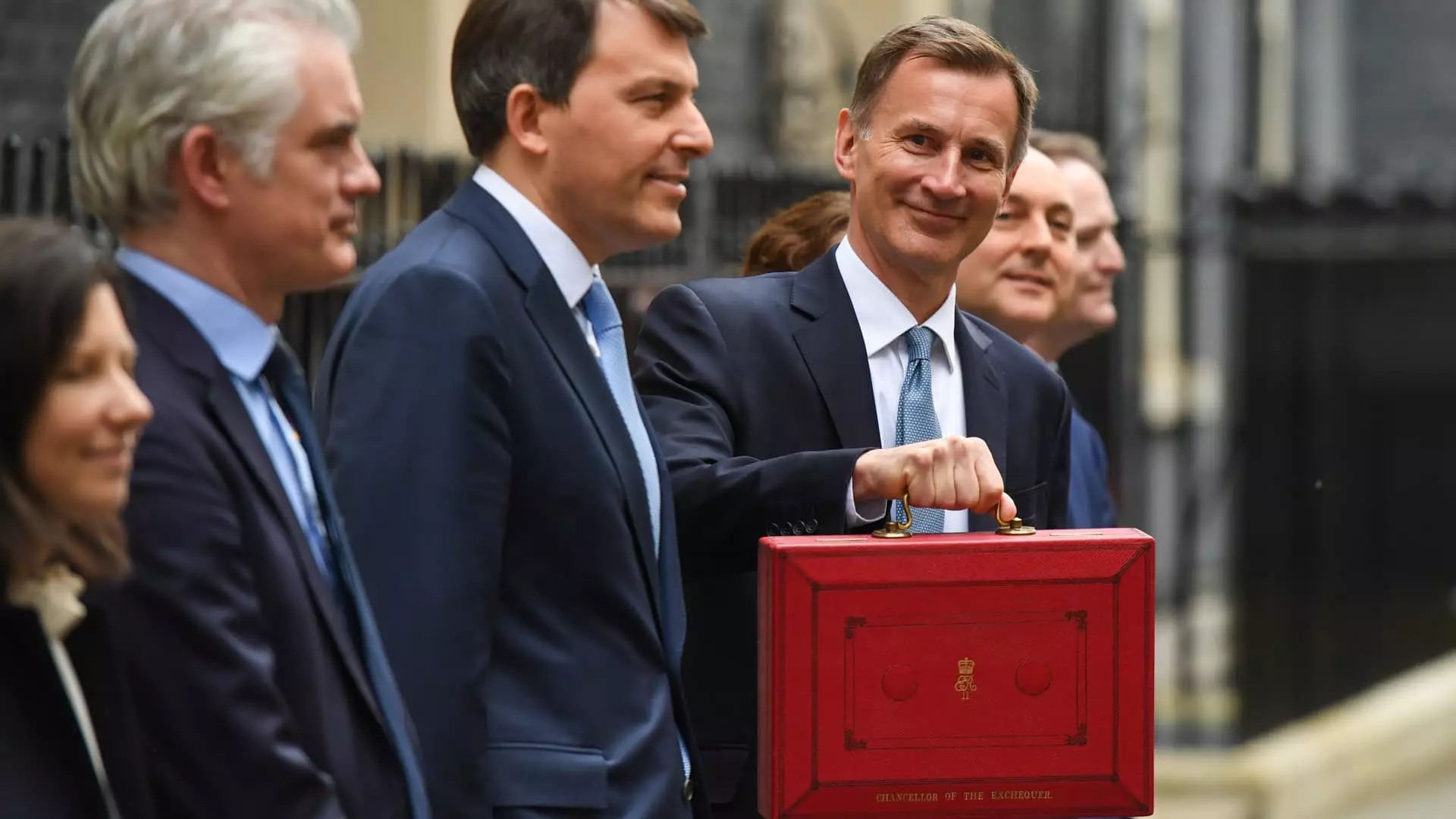The recent figures released by the Office for National Statistics reveal that the United Kingdom achieved a remarkable net budget surplus of £16.7 billion ($21.1 billion) in January 2024. This surplus is particularly notable given the context of the country’s public finances, which traditionally run a surplus in January compared to other months. The surge in receipts can be attributed to the influx of self-assessed annual income tax payments during this period. In January alone, combined self-assessed income and capital gains tax receipts amounted to £33 billion, reflecting a slight decline of £1.8 billion from the previous year.
Total government tax receipts hit a record £90.8 billion in January 2024, demonstrating a notable increase of £2.9 billion compared to the same period in 2023. Despite the robust tax revenues, government borrowing for the financial year leading up to the end of January 2024 stood at £96.6 billion. This figure represents a £3.1 billion reduction from the corresponding 10-month period a year prior and is significantly lower than the initial forecast of £105.8 billion by the independent Office for Budget Responsibility.
Notably, public debt remains a concern, estimated at approximately 96.5% of annual gross domestic product. The 1.8 percentage point increase from January 2023 underscores the ongoing challenges in managing the country’s fiscal health. The government’s chief secretary to the Treasury, Laura Trott, emphasized the importance of making tough decisions to curtail borrowing and safeguard future generations from bearing the burden of excessive debt.
As the final public finance data before Finance Minister Jeremy Hunt’s Spring Budget announcement on March 6, there is anticipation surrounding the government’s fiscal policy direction for the upcoming year. With a looming general election and polls indicating a significant lead for the main opposition Labour Party, there is speculation on potential tax cuts as part of the government’s economic agenda. However, constraints imposed by the current fiscal conditions may limit the extent to which tax cuts can be implemented.
Despite the positive momentum generated by the record January surplus, challenges persist, particularly in relation to self-assessment receipts falling short of expectations. This shortfall underscores the need for prudent financial management and strategic decision-making to navigate the uncertainties ahead. The Institute for Fiscal Studies underlines the significance of growth and inflation outlooks in shaping future fiscal policies.
While the UK’s achievement of a substantial budget surplus in January 2024 is commendable, it is essential to continue monitoring and addressing the underlying fiscal challenges. With a delicate balance between economic growth, public debt management, and strategic investments, the government faces a formidable task in steering the country towards sustainable financial stability and prosperity. The upcoming budget announcement will provide further insights into the government’s priorities and commitments in navigating the complex economic landscape ahead.

